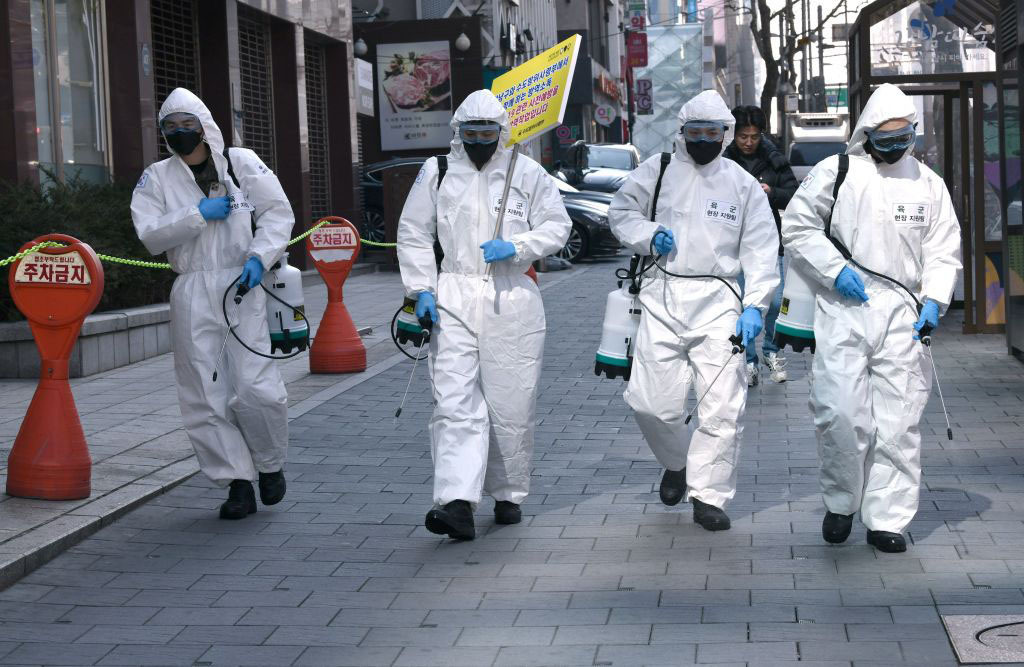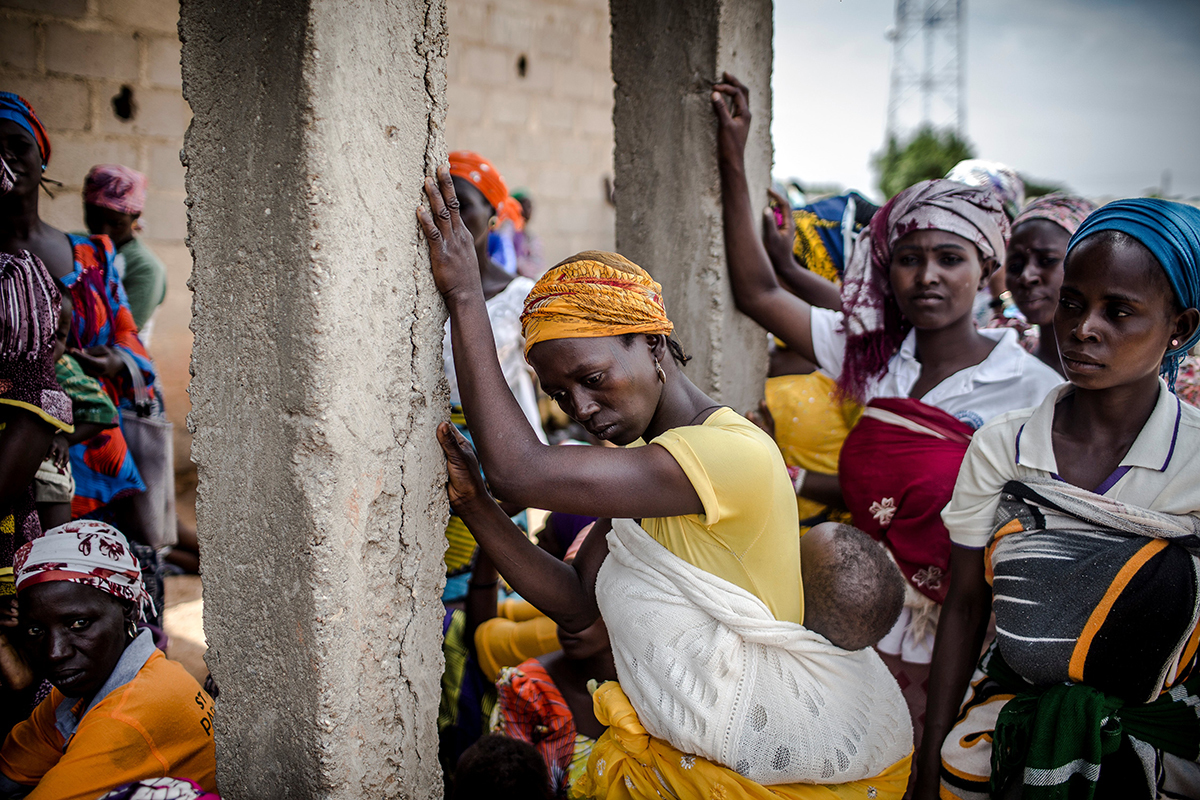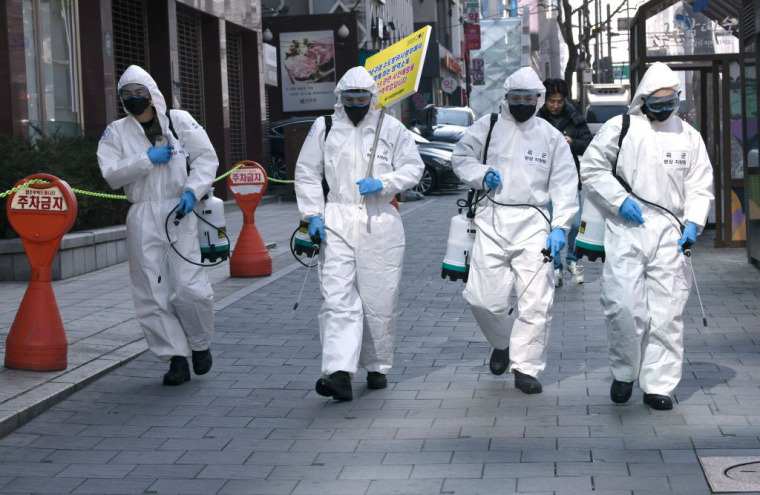
A Messianic Jewish leader and bestselling author claims that the COVID-19 pandemic was a divine punishment for the United States’ acceptance of abortion.
Jonathan Cahn, the author of such bestselling titles as The Harbinger and The Return of the Gods, released his new book earlier this month, titled The Josiah Manifesto.
In the book, Cahn draws historical and biblical parallels related to American history, with a particular focus on the biblical concept of Jubilee, an Old Testament ordinance in which, every 50th year, the Israelites were to, among other things, free slaves and cancel debts.
According to Cahn, there were certain parallels found between the steps taken in the early 1970s to legalize abortion and the phases of the coronavirus pandemic in the U.S., with key events taking place exactly 50 years apart.
“The Bible says very clearly that if any nation or culture kills its children, that harms its children, it’s going to come back at them. The prophet Jeremiah said that,” Cahn told The Christian Post.
“When Jeremiah spoke about it to Israel, he said one of the forms that the judgment would come back for this, he said in Hebrew the term is ‘dever gadol,’ which means a ‘great plague’ or a ‘massive pandemic.’ So, the first thing in the actual biblical connection would be that there’s an ironclad law.”
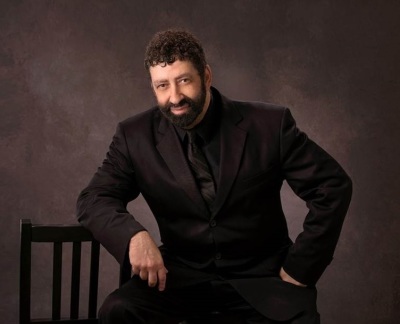
Cahn believes that “there are amazing and stunning connections between” the pandemic and the legalizing of abortion.
“The very day that abortion entered the New York Legislature in 1970, which is the very beginning, it was Jan. 20. If you go 50 years later, it would be the plague, COVID, that enters officially in America on Jan. 20, 2020. Fifty years to the date,” he said.
“You’ll find parallel after parallel, match after match this 50-year match happened several times, even the place of where the pandemic focused when it came to America was New York, and New York is the abortion capital of America.”
Cahn also told CP that “abortion is a sin of the old against the young, and it was strange that this contagion had the property of sparing the young and attacking the old.”
“Jeremiah says that the blood of the children will be matched by the death that comes to the nation. And the amazing thing, one of the things I put in the book, is that when you look at the first three years of abortion from its entrance until Roe v. Wade, the number of children killed in that time period is 1.3 million,” he continued.
“When, 50 years later, which is the Jubilee of the Bible, you have another three-year period that matches that period, and that’s the three years of COVID. And in that same exact three-year period, the number of Americans who were struck down and killed by this plague is 1.3 million. It’s the exact number of the children.”
In his interview with CP, Cahn talked more about his book’s claims of biblical parallels regarding abortion, the political career of former President Donald Trump, and something he calls “The Josiah Moment.” Below are excerpts from that conversation.
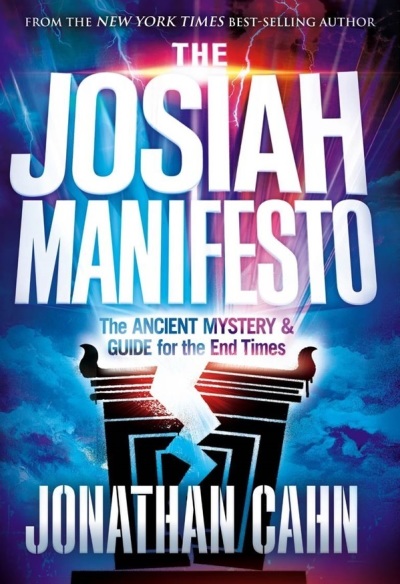
CP: You have written books about biblical prophecy before. How does this book compare and contrast with your past work?
Cahn: About two-thirds of it are biblical mysteries that are unfolding in America now. That part goes with the other books. What we’ve been witnessing over the past few years, are some very stunning mysteries and patterns behind what’s happening. So, in that sense, that’s similar.
What if the Lord was showing us where we are prophetically and where we are going?
If you can imagine, if there was an ancient calendar that actually gives the events that have happened, that are going to happen, and even the time of those events.
As far as it contrasting, The Josiah Manifesto [is] the one book where a good amount of it is giving the answer. That’s why it’s called “Manifesto.” It’s giving a blueprint about what do we do. Is there an actual template from the Bible that is for now? How do believers stand in the face of everything that’s happening and in the face of all that is coming?
The last third, it is the manifesto. It is the guide, the blueprint, the template on which touches how to react, how to live, how to respond, and how to overcome in all these things.
CP: In the book, you draw a parallel between pagan child sacrifices in the Ancient Near East and abortion in modern Western civilization, stating that “there is no meaningful distinction” between the two. What specific commonalities do you see between the two?
Cahn: The killing of children is the first.
In the ancient practice of child sacrifice, they did so in order to gain material benefit or financial reward or fertility and the number one reason given for women to have abortions is because they are told [having a child] is going to interfere with their career, their earning, their life.
Also, back then, in ancient times, they would drown out the act, they would shield the culture from the horror of the act of killing the children. They would play drums to drown it out. And we do the same in our culture as well, in drowning out what is the real horror of this.
The children who were offered up as child sacrifice, more than any other, were the children of the poor. And when you look at abortion today, it is exactly that. It is the children of the poor who are offered up more than any other.
In child sacrifice, you had both the parents involved in it, and also the actual one officiating over it. And today, we have the parents and the abortionists.
When you look at what the radical abortionists and radical feminists speak and say about abortion, they actually often speak of it in terms of a sacrament. As something that is a sacred act. And there are even some of them that link it themselves to the ancient pagan sacrifices.
They themselves make the connection.
CP: In Chapter 18, you draw parallels between the Old Testament King Jehu and Trump, noting that both were fighters, mentioned God but weren’t known to be men of God, etc. When it comes to biblical figures, many have compared Trump to King Cyrus. What is your opinion of this comparison?
Cahn: Trump has walked in the template of Cyrus with regard to the nation of Israel. It’s what he did to Israel. Cyrus recognized that the temple and the right of Israel to Jerusalem and the temple, issued a proclamation. Well, Trump did the same thing.
So, that’s very much Cyrus to Israel. And they look at him as a Cyrus.
But, with America, that’s a whole different thing.
Cyrus was not of Israel … but Jehu was of Israel.
Jehu made an alliance with the religious conservatives of his land, so did Trump. Jehu stood against the nation’s former first lady in order to come to power, so did Trump.
Jehu came against the temple of Baal and the cult of Baal, which involved child sacrifice. And it says that Jehu rid Israel of this. Well, Trump — and again, no matter what one thinks of him — was the president most instrumental for overturning America’s own temple of Baal, which is Roe v. Wade, which has enabled the killing of 60 million children.
CP: While drawing parallels between Jehu’s followers storming the temple of Baal and the Jan. 6 Capitol riot, you acknowledged in the book that the fallout from the two events was different. As you wrote, “It was, in a sense, a rematch. Only this time, the modern Jehu and his forces would not prevail.” Why do you not consider this different result between the two events to be evidence against the idea that they are linked?
Cahn: The template [that] happens is manifested three times, so there’s three outcomes here.
One of the templates is that Jehu rises, the temple falls. Then with Jan. 6, the template still replays itself.
The match with Jehu and the temple of Baal frames Jehu’s reign. It starts it.
With Trump, that also frames it with the fall of the temple of Baal.
But it also frames the end of his reign, the end of his term.
It doesn’t mean it’s the end of the story, because the other thing is that another form in which the template comes to a manifestation is the pulling down of the temple of Baal. It was after Trump’s term that what he did, when he was president, by nominating three Supreme Court justices, actually pulled down Roe v. Wade, which is the killing of children, which is the temple of Baal as well.
This might not be over, either. There might be another rematch because there is another election coming.
CP: You argued in the book that, with the overturning of Roe v. Wade, the U.S. is in a “Josiah moment,” in which we have to make a crucial decision either to pursue repentance or keep accepting wickedness. As you know, earlier this year, there was a revival movement that broke out at Asbury University of Kentucky. What role, if any, do you see the Asbury revival playing in this “Josiah moment”?
Cahn: With Josiah, it’s a real contrast. On the one hand, it’s near the end, its near judgment, and judgment was going to come. On the other hand, its revival that forestalled the judgment.
There was this 50-year cycle that finished with the 50th anniversary of Roe v. Wade.
[The Asbury Revival] was soon after the end of that cycle. It was very interesting.
And it wasn’t just at Asbury, there were some others that were related to it. So, it is possible that it could be a first fruit. The question, though, is where does this go? Does this stop or does this keep going?
CP: How do you respond to those who might say that, while you have found some interesting parallels regarding the Jubilee and events like the history of Roe and the COVID-19 pandemic, ultimately these are just coincidences?
Cahn: If it was one thing that happened once, but when you look at the 50-year parallels, there are multitudes of them and a whole bunch of them are exactly, not just to the year, but to the month, and to the day.
Number two, it’s too consistent.
It’s not just this happens with this thing, but when you keep following the trajectory of Roe v. Wade, and abortion, the trajectory keeps getting fulfilled on the other end of the 50 years.
Also, there’s a message in it. It’s not like it’s just something random that has no meaning to it. It has a meaning.
It all converges with the broken altar and that’s Josiah, and that is a very definite, definitive message. It’s not random, it’s something very intentional.
CP: What do you hope readers take away from your book?
Cahn: One, that the God of the Bible is just as real as He was back then. It’s not just a cliché, He’s real, just as much as He is the God of history back then, He’s the God of history in our lives.
He is precise; He is exact with all that looks like much of the events that I speak about. People thought things were so out of control. Well, no, He’s extremely in control. God is in control.
God is never finished. His ways are never finished.
We are never to lift up a white flag and surrender. We always have a purpose, even in the End Times or even in ungodly times. In fact, those could be the most exciting times. Josiah is a figure who lives in a very dark apostate time and yet he turns it around.
The whole reason why I was very led to call it “Manifesto” is that there is a purpose, there is a calling for those who will rise to that calling. The fact that it is dark will not nullify the purpose that God has for the light. It will only magnify it.
When the dark gets darker, the light just gets lighter. So, this could be the greatest time for those who will rise to the call and what I hope the takeaway will be is that they will rise to the call.




























![[Video] More – Aghogho » GospelHotspot](https://gospelhotspot.net/wp-content/uploads/2024/04/More-Aghogho.jpeg)







